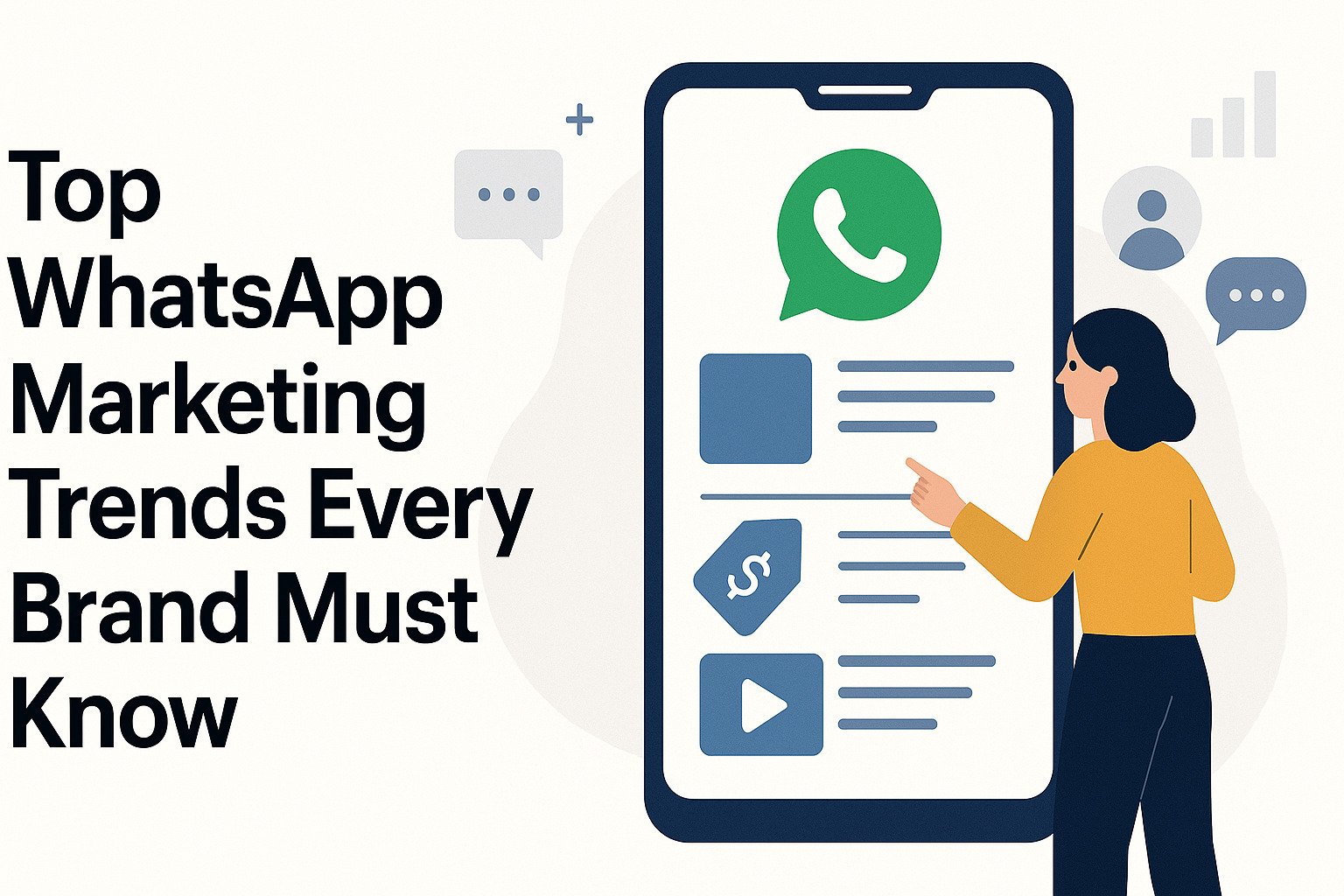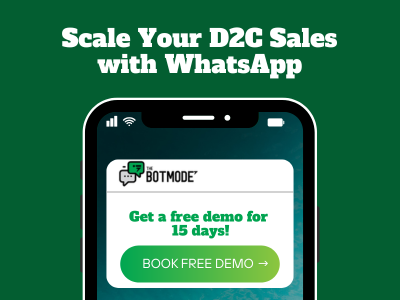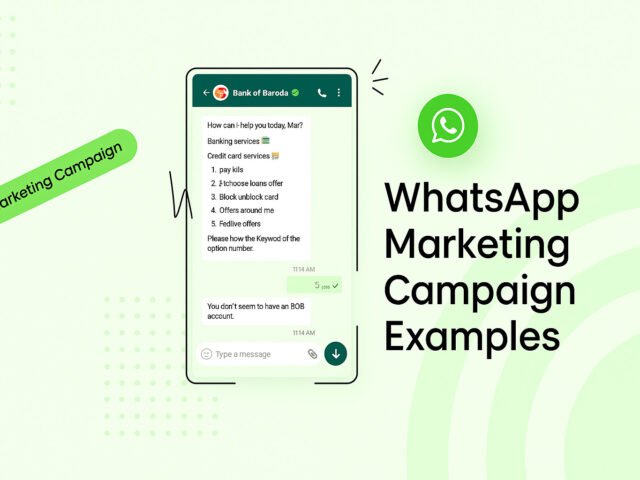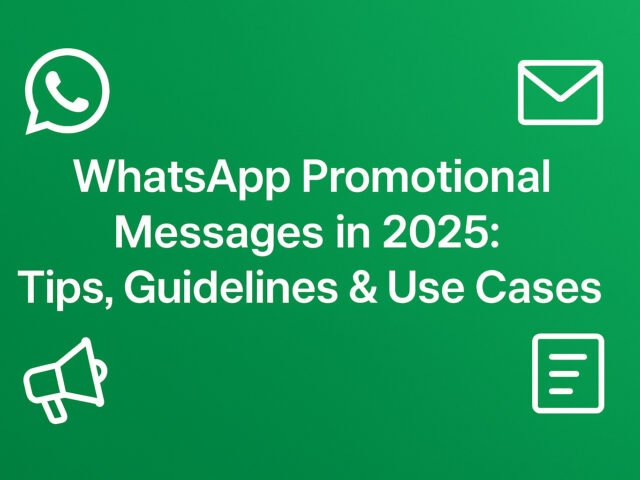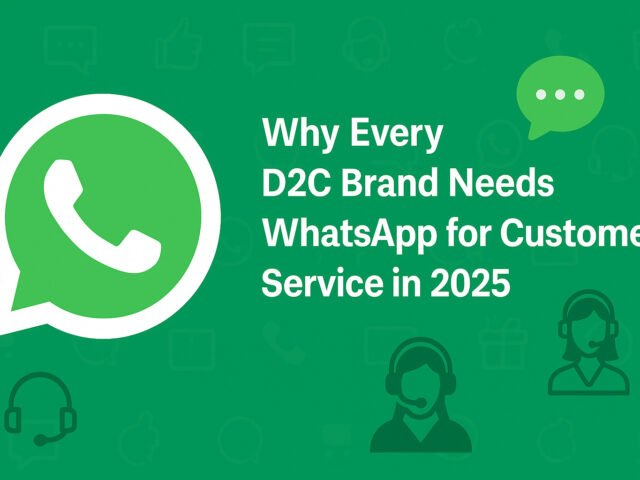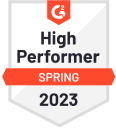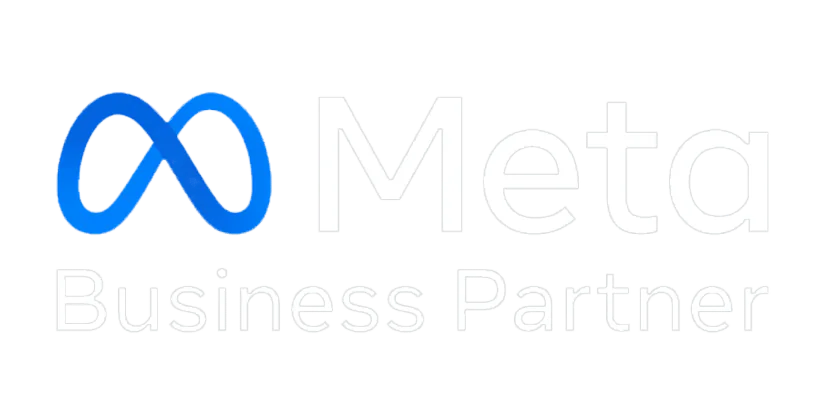Introduction
In 2025, WhatsApp marketing has evolved into a primary channel for D2C brands aiming to connect with customers at scale. With over 2 billion active users and widespread adoption of the WhatsApp Business API, brands are utilizing the platform for everything from customer service and cart recovery to personalized promotions and payments.
In this blog, we’ll uncover the top WhatsApp marketing trends that are redefining the future of eCommerce and customer engagement in 2025.
1. WhatsApp Automation for Faster Customer Engagement
With rising expectations for instant support, automation is no longer a nice-to-have—it’s a necessity. Brands are deploying WhatsApp chatbots to handle FAQs, process order tracking requests, and qualify leads in real time.
Why it matters:
- Reduces manual support load
- Provides 24/7 customer assistance
- Enhances satisfaction and brand trust
2. AI-Powered Personalization
D2C brands are integrating AI and machine learning into their WhatsApp strategy to deliver hyper-personalized messages. From product suggestions to timely reminders, these systems respond intelligently to user behavior, preferences, and purchase history.
Trend impact:
- Drives higher conversion rates
- Improves customer experience
- Builds long-term loyalty
3. Catalog and One-Click Shopping via WhatsApp
The WhatsApp Business Catalog allows users to browse and buy directly within the app. Brands can showcase products with images, pricing, and descriptions, and even integrate with one-click checkout flows.
Benefits:
- Reduces drop-offs in the buying journey
- Improves product discovery
- Increases checkout completion rates
4. Automated Order Updates and Cart Recovery
Brands are leveraging WhatsApp for transactional updates such as:
- Order confirmations
- Shipping notifications
- Delivery tracking
- Abandoned cart reminders
These updates improve transparency and reduce WISMO (“Where Is My Order”) queries.
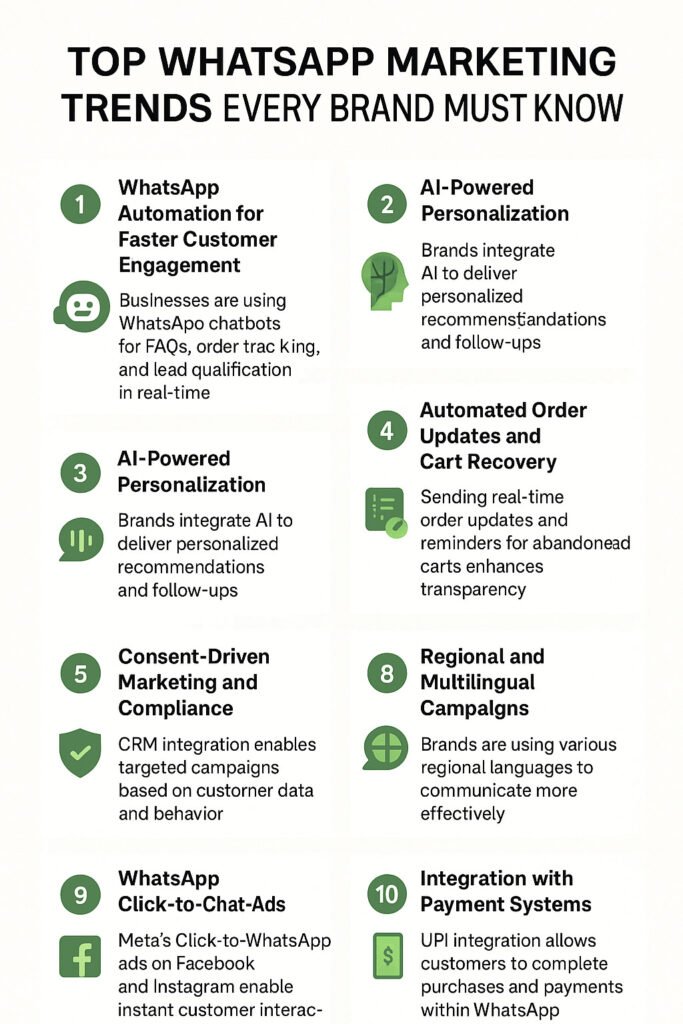
5. WhatsApp Retargeting and CRM Integration
By connecting WhatsApp with CRMs, brands can sync customer data to run highly targeted campaigns. You can segment audiences based on behavior, location, and purchase history to retarget cold leads and improve conversions.
6. Voice Notes and Multimedia Messaging
Brands are adopting rich media formats—like videos, voice notes, and PDFs—for tutorials, product launches, and welcome messages. These formats capture attention better than plain text and humanize communication.
7. Consent-Driven Marketing and Compliance
WhatsApp’s 2025 policies require strict opt-in mechanisms and easy opt-outs. Brands must follow consent-first strategies to remain compliant with GDPR and India’s DPDP regulations.
Key takeaway:
- Transparent, permission-based messaging builds trust and avoids penalties.
8. Regional and Multilingual Campaigns
Brands are reaching deeper into Tier 2 and Tier 3 cities by running campaigns in regional languages such as Hindi, Tamil, Bengali, and Marathi. Multilingual marketing ensures relevance and stronger emotional connection.
9. WhatsApp Click-to-Chat Ads
Meta’s Click-to-WhatsApp ads continue to rise in popularity. These ads, shown on Facebook or Instagram, open a direct chat with the brand—accelerating lead capture and real-time engagement.
10. Integration with Payment Systems
With UPI integration, WhatsApp is now a complete commerce platform. Customers can:
- Browse products
- Place orders
- Make payments
- Receive invoices
All within a single conversation.
Conclusion
As customer behavior evolves, WhatsApp will remain central to digital-first engagement. Brands that adopt these trends—automation, personalization, compliance, and localization—will outperform competitors by delivering faster, more relevant, and frictionless experiences.
2025 marks a turning point in WhatsApp’s transformation from a messaging app into a full-fledged commerce and customer engagement engine.
FAQs
What are the top WhatsApp marketing trends in 2025?
The leading trends include automation, AI-driven personalization, WhatsApp catalogs, CRM retargeting, multilingual messaging, and payment integrations.
How can D2C brands benefit from WhatsApp marketing?
WhatsApp enables brands to automate support, recover abandoned carts, personalize outreach, and boost repeat purchases, all while maintaining real-time interaction.
Is WhatsApp marketing better than email marketing?
WhatsApp campaigns often see significantly higher open and response rates than email, making it ideal for mobile-first, time-sensitive, and conversational engagement.
Are WhatsApp campaigns GDPR and DPDP compliant?
Yes—if brands follow opt-in requirements, provide clear consent, and offer opt-out options, they can remain compliant with both GDPR and India’s Data Protection Bill.

